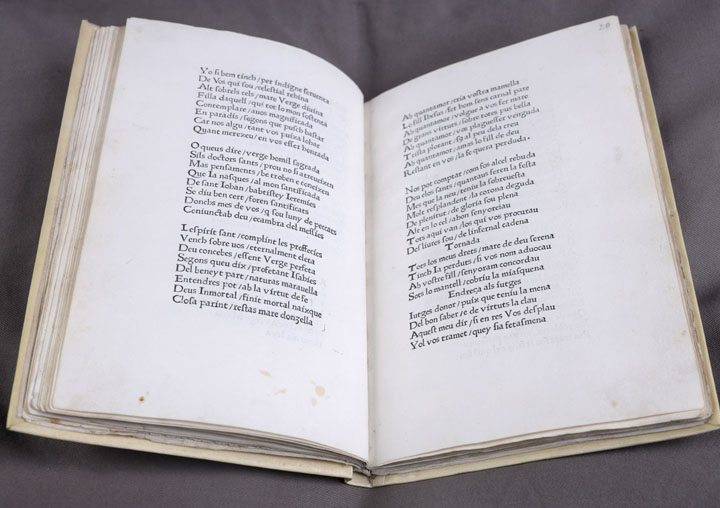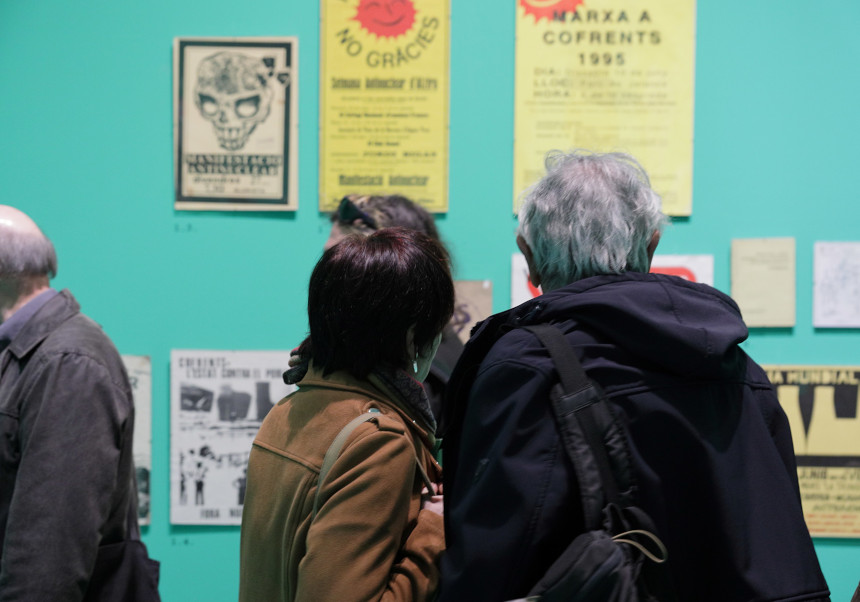The European Council awards the Universitat’s idea of “Paseo por la Valencia de Lluís Vives”
- Press Office
- June 1st, 2022

“Paseo por la Valencia del humanista Lluís Vives” (A walk through the Valencia of the humanist Lluís Vives) is the title of a project from the Universitat de València awarded by the European Council in the call entitled European Heritage Days Stories. The Universitat will receive 7,000 euros to organize routes through the Valencia of Vives, with guides that will speak in Valencian, Spanish and English.
Since the celebration of the European Year of Cultural Heritage in 2018, the European Council and the European Commission publish every year the European Heritage Days Stories call for ten cultural heritage stories from across Europe.
The Universitat de València participated with a story about Joan Lluís Vives (València, 1492-Brujas, 1540). The walk will take the participants into the cultural and social environment of the Europe of the time, characterized by tensions between the new humanist thinking and the religious intolerance.
The journey will be open to all citizens and will be carry out in groups with a guide. This will coincide with the celebration of the European Heritage Days 2022 that the Universitat de València will celebrate on the 22 and 23 of October. Also, it is intended that this activity becomes permanent and stable integrated within the cultural extension programmes aimed at Erasmus students of the Universitat de València, people over 55 years of age, and students from middle and high school centres. A website will also be created where an audio guide can be downloaded to follow the itinerary.
The duration of the itinerary will be one hour and a half. The starting point is the Margarita de Valladura square, where the house where Lluís Vives was born is located. A bronze bust of the humanist has been placed next to it. The tour will have informative stops in the Lluís Vives street, Mar street, the former Figuera square (main artery of the Jewish quarter, where were the main business and synagogue, the Virgen square (where the Inquisition's auto-da-fé were executed and where many Jews were condemned to death at the stake, including some of Vives' family), the old Almoina house (where the Theology school was located whose studies were integrated into the Universitat de València from its foundation in 1499), and the places where the four doors that opened the perimeter that delimited the Jewish quarter were located.
The itinerary will end at the historical building of the Universitat de València, where the participants will visit the most representative spaces such as the Paraninfo, the historical library, the chapel, and rector’s offices. The visit will finish at the courtyard, dominated since 1880 by a bronze statue of Lluís Vives as a tribute form the Universitat to one of it most distinguished students.
Vives is one of the greatest European humanist of the 16th century, among with Erasmo de Róterdam and Tomás Moro. He was son of a converted Jewish family, was of the fist students if the Universitat de València, founded in 1499. In the face of the Inquisition threats to his family, his parents decided, in 1509, that the young man should go to Paris to continue his studies. Between 1484 and 1530. 2,160 trials were held in Valencia, of which 909 were sentenced by death by stake. The omen of his family came true, for his father was condemned in 1522 and his mother, who died in 1508, was tried “post mortem” and also condemned. Vives never returned to Spain. The tolerance spirit that prevailed in other European countries made it possible for him to develop a productive humanistic career in the most prestigious universities.
The person and work of Lluís Vives represent the social and political commitment to the problems of his time, in which he placed the human person at the centre. He proposed action in favour of international peace, the unity of Europeans and care for the disadvantaged and excluded.
File in: Patrimoni Cultural




.jpg)











